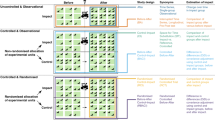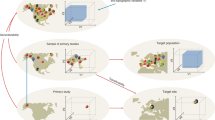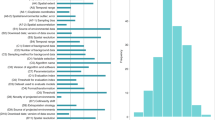Abstract
In many scientific disciplines, common research practices have led to unreliable and exaggerated evidence about scientific phenomena. Here we describe some of these practices and quantify their pervasiveness in recent ecology publications in five popular journals. In an analysis of over 350 studies published between 2018 and 2020, we detect empirical evidence of exaggeration bias and selective reporting of statistically significant results. This evidence implies that the published effect sizes in ecology journals exaggerate the importance of the ecological relationships that they aim to quantify. An exaggerated evidence base hinders the ability of empirical ecology to reliably contribute to science, policy, and management. To increase the credibility of ecology research, we describe a set of actions that ecologists should take, including changes to scientific norms about what high-quality ecology looks like and expectations about what high-quality studies can deliver.
This is a preview of subscription content, access via your institution
Access options
Access Nature and 54 other Nature Portfolio journals
Get Nature+, our best-value online-access subscription
$29.99 / 30 days
cancel any time
Subscribe to this journal
Receive 12 digital issues and online access to articles
$119.00 per year
only $9.92 per issue
Buy this article
- Purchase on Springer Link
- Instant access to full article PDF
Prices may be subject to local taxes which are calculated during checkout





Similar content being viewed by others
Data availability
Our dataset is available at https://osf.io/9yd2b.
Code availability
Our analysis code is available at https://osf.io/9yd2b.
References
Nosek, B. A., Spies, J. R. & Motyl, M. Scientific utopia: II. restructuring incentives and practices to promote truth over publishability. Perspect. Psychol. Sci. 7, 615–631 (2012).
Leimu, R. & Koricheva, J. Cumulative meta-analysis: a new tool for detection of temporal trends and publication bias in ecology. Proc. R. Soc. B 271, 1961–1966 (2004).
Møller, A. P. & Jennions, M. D. Testing and adjusting for publication bias. Trends Ecol. Evol. 16, 580–586 (2001).
Barto, E. K. & Rillig, M. C. Dissemination biases in ecology: effect sizes matter more than quality. Oikos 121, 228–235 (2012).
Christensen, G. & Miguel, E. Transparency, reproducibility, and the credibility of economics research. J. Econ. Lit. 56, 920–980 (2018).
Collaboration, O. S. Estimating the reproducibility of psychological science. Science 349, aac4716 (2015).
Ferraro, P. J. & Shukla, P. Is a replicability crisis on the horizon for environmental and resource economics? Rev. Environ. Econ. Policy 14, 339–351 (2020).
Martinson, B. C., Anderson, M. S. & de Vries, R. Scientists behaving badly. Nature 435, 737–738 (2005).
Ioannidis, J. P. A. Why most published research findings are false. PLoS Med. 2, 696–701 (2005).
Fraser, H., Parker, T., Nakagawa, S., Barnett, A. & Fidler, F. Questionable research practices in ecology and evolution. PLoS ONE 13, e0200303 (2018).
Fraser, H., Barnett, A., Parker, T. H. & Fidler, F. The role of replication studies in ecology. Ecol. Evol. 10, 5197–5207 (2020).
Fidler, F. et al. Metaresearch for evaluating reproducibility in ecology and evolution. Bioscience 67, 282–289 (2017).
Cassey, P. & Blackburn, T. M. Reproducibility and repeatability in ecology. Bioscience 56, 958–959 (2006).
Parker, T. H. et al. Transparency in ecology and evolution: real problems, real solutions. Trends Ecol. Evol. 31, 711–719 (2016).
Ioannidis, J. P. A., Stanley, T. D. & Doucouliagos, H. The power of bias in economics research. Econ. J. 127, F236–F265 (2017).
Jennions, M. D. & Møller, A. P. A survey of the statistical power of research in behavioral ecology and animal behavior. Behav. Ecol. 14, 438–445 (2003).
Lemoine, N. P. et al. Underappreciated problems of low replication in ecological field studies. Ecology 97, 2562–2569 (2016).
Yang, Y. et al. Publication bias impacts on effect size, statistical power, and magnitude (type M) and sign (type S) errors in ecology and evolutionary biology. BMC Bio. 21, 71 (2023).
Button, K. S. et al. Power failure: why small sample size undermines the reliability of neuroscience. Nat. Rev. Neurosci. 14, 365–376 (2013).
Fidler, F., Burgman, M. A., Cumming, G., Buttrose, R. & Thomason, N. Impact of criticism of null-hypothesis significance testing on statistical reporting practices in conservation biology. Conserv. Biol. 20, 1539–1544 (2006).
Gelman, A. & Carlin, J. Beyond power calculations: assessing type S (sign) and type M (magnitude) errors. Perspect. Psychol. Sci. 9, 641–651 (2014).
Nichols, J. D., Oli, M. K., Kendall, W. L. & Scott Boomer, G. A better approach for dealing with reproducibility and replicability in science. Proc. Natl Acad. Sci. USA 118, 1–5 (2021).
Koricheva, J. Non-significant results in ecology: a burden or a blessing in disguise? Oikos 102, 397–401 (2003).
Ceausu, I. et al. High impact journals in ecology cover proportionally more statistically significant findings. Preprint at bioRxiv https://doi.org/10.1093/sw/38.6.771 (2018).
Nichols, J. D., Kendall, W. L. & Boomer, G. S. Accumulating evidence in ecology: once is not enough. Ecol. Evol. 9, 13991–14004 (2019).
Fanelli, D. Negative results are disappearing from most disciplines and countries. Scientometrics 90, 891–904 (2012).
Fanelli, D. Is science really facing a reproducibility crisis, and do we need it to? Proc. Natl Acad. Sci. USA 115, 2628–2631 (2018).
Yoccoz, N. G. Use, overuse, and misuse of significance tests in evolutionary biology and ecology. Bull. Ecol. Soc. Am. 72, 106–111 (1991).
Fidler, F., Fraser, H., McCarthy, M. A. & Game, E. T. Improving the transparency of statistical reporting in Conservation Letters. Conserv. Lett. 11, 1–5 (2018).
Murtaugh, P. A. In defense of P values. Ecology 95, 611–617 (2014).
Anderson, D. R., Burnham, K. P. & Thompson, W. L. Null hypothesis testing: problems, prevalence, and an alternative. J. Wildl. Manag. 64, 912–923 (2000).
Callaham, M., Wears, R. L. & Weber, E. Journal prestige, publication bias, and other characteristics associated with citation of published studies in peer-reviewed journals. J. Am. Med. Assoc. 287, 2847–2850 (2002).
Brodeur, A., Lé, M., Sangnier, M. & Zylberberg, Y. Star wars: the empirics strike back. Am. Econ. J. Appl. Econ. 8, 1–32 (2016).
Gopalakrishna, G. et al. Prevalence of questionable research practices, research misconduct and their potential explanatory factors: a survey among academic researchers in the Netherlands. PLoS ONE 17, 1–16 (2022).
Simmons, J. P., Nelson, L. D. & Simonsohn, U. False-positive psychology: undisclosed flexibility in data collection and analysis allows presenting anything as significant. Psychol. Sci. 22, 1359–1366 (2011).
Head, M. L., Holman, L., Lanfear, R., Kahn, A. T. & Jennions, M. D. The extent and consequences of P-hacking in science. PLoS Biol. 13, 1–15 (2015).
Hartgerink, C. H. J., Van Aert, R. C. M., Nuijten, M. B., Wicherts, J. M. & Van Assen, M. A. L. M. Distributions of p-values smaller than .05 in psychology: what is going on? PeerJ 2016, e1935 (2016).
Shaffer, J. P. Multiple hypothesis testing. Annu. Rev. Psychol. 46, 561–584 (1995).
Benjamini, Y. & Hochberg, Y. Controlling the false discovery rate: a practical and powerful approach to multiple testing. J. R. Stat. Soc. Ser. B 57, 289–300 (1995).
Dunnett, C. W. A multiple comparison procedure for comparing several treatments with a control. J. Am. Stat. Assoc. 50, 1096–1121 (1955).
Yekutieli, D. & Benjamini, Y. Resampling-based false discovery rate controlling multiple test procedures for correlated test statistics. J. Stat. Plan. Inference 82, 171–196 (1999).
Berry, D. A. & Hochberg, Y. Bayesian perspectives on multiple comparisons. J. Stat. Plan. Inference 82, 215–227 (1999).
Gelman, A., Hill, J. & Yajima, M. Why we (usually) don’t have to worry about multiple comparisons. J. Res. Educ. Eff. 5, 189–211 (2012).
Rubin, M. Do p values lose their meaning in exploratory analyses? It depends how you define the familywise error rate. Rev. Gen. Psychol. 21, 269–275 (2017).
Rubin, M. When does HARKing hurt? Identifying when different types of undisclosed post hoc hypothesizing harm scientific progress. Rev. Gen. Psychol. 21, 308–320 (2017).
Nakagawa, S. A farewell to Bonferroni: the problems of low statistical power and publication bias. Behav. Ecol. 15, 1044–1045 (2004).
Forstmeier, W., Wagenmakers, E. J. & Parker, T. H. Detecting and avoiding likely false-positive findings—a practical guide. Biol. Rev. 92, 1941–1968 (2017).
Baker, M. & Penny, D. Is there a reproducibility crisis? Nature 533, 452–454 (2016).
Gelman, A. & Loken, E. The statistical crisis in science. Am. Sci. 102, 460–465 (2014).
O’Dea, R. E. et al. Towards open, reliable, and transparent ecology and evolutionary biology. BMC Biol. 19, 1–5 (2021).
Parker, T. H., Nakagawa, S. & Gurevitch, J. Promoting transparency in evolutionary biology and ecology. Ecol. Lett. 19, 726–728 (2016).
Parker, T., Fraser, H. & Nakagawa, S. Making conservation science more reliable with preregistration and registered reports. Conserv. Biol. 33, 747–750 (2019).
Buxton, R. T. et al. Avoiding wasted research resources in conservation science. Conserv. Sci. Pract. 3, 1–11 (2021).
Powers, S. M. & Hampton, S. E. Open science, reproducibility, and transparency in ecology. Ecol. Appl. 29, 1–8 (2019).
Archmiller, A. A. et al. Computational reproducibility in the Wildlife Society’s flagship journals. J. Wildl. Manag. 84, 1012–1017 (2020).
Whitlock, M. C., McPeek, M. A., Rausher, M. D., Rieseberg, L. & Moore, A. J. Data archiving. Am. Nat. 175, 145–146 (2010).
Whitlock, M. C. Data archiving in ecology and evolution: best practices. Trends Ecol. Evol. 26, 61–65 (2011).
Mislan, K. A. S., Heer, J. M. & White, E. P. Elevating the status of code in ecology. Trends Ecol. Evol. 31, 4–7 (2016).
Culina, A., van den Berg, I., Evans, S. & Sánchez-Tójar, A. Low availability of code in ecology: a call for urgent action. PLoS Biol. 18, 1–9 (2020).
Wilkinson, M. D. et al. Comment: the FAIR Guiding Principles for scientific data management and stewardship. Sci. Data 3, 1–9 (2016).
Gopalakrishna, G. et al. Prevalence of responsible research practices among academics in the Netherlands. F1000Research 11, 1–34 (2022).
Hardwicke, T. E. et al. Data availability, reusability, and analytic reproducibility: evaluating the impact of a mandatory open data policy at the journal Cognition. R. Soc. Open Sci. 5, 180448 (2018).
Stodden, V., Seiler, J. & Ma, Z. An empirical analysis of journal policy effectiveness for computational reproducibility. Proc. Natl Acad. Sci. USA 115, 2584–2589 (2018).
Roche, D. G., Kruuk, L. E. B., Lanfear, R. & Binning, S. A. Public data archiving in ecology and evolution: how well are we doing? PLoS Biol. 13, 1–12 (2015).
Roche, D. G. et al. Slow improvement to the archiving quality of open datasets shared by researchers in ecology and evolution. Proc. R. Soc. B 289, 20212780 (2022).
Lindsey, P. A. et al. The bushmeat trade in African savannas: impacts, drivers, and possible solutions. Biol. Conserv. 160, 80–96 (2013).
Roche, D. G. et al. Paths towards greater consensus building in experimental biology. J. Exp. Biol. 225, jeb243559 (2022).
Smaldino, P. E. & McElreath, R. The natural selection of bad science. R. Soc. Open Sci. 3, 160384 (2016).
R Core Team. R: a language and environment for statistical computing (R Foundation for Statistical Computing, 2019); https://www.R-project.org/
Müller, K. here: a simpler way to find your files. R package version 1.0.1 (2017). https://CRAN.R-project.org/package=here
Wickham, H., Francois, R., Henry, L. & Muller, K. dplyr: a grammar of data manipulation R package version 1.0.7 (2020). https://CRAN.R-project.org/package=dplyr
Wickham, H. & Henry, L. tidyr: tidy messy data R package version 1.1.4 (2020). https://CRAN.R-project.org/package=tidyr
Wickham, H. ggplot2: elegant graphics for data analysis (Springer-Verlag, 2016).
Kassambara, A. ggpubr: ‘ggplot2’ based publication ready plots. R package version 0.4.0 (2020). https://CRAN.R-project.org/package=ggpubr
Pedersen, T. L. patchwork: the composer of plots. R package version 1.1.1 (2021). https://CRAN.R-project.org/package=patchwork
Wickham, H. & Seidel, D. scales: scale functions for visualization. R package version 1.1.1 (2020). https://CRAN.R-project.org/package=scales
Bloom, H. S. Minimum detectable effects: a simple way to report the statistical power of experimental designs. Eval. Rev. 19, 547–556 (1995).
Djimeu, E. W. & Houndolo, D. G. Power calculation for causal inference in social science: sample size and minimum detectable effect determination. J. Dev. Eff. 8, 508–527 (2016).
Havranek, T., Horvath, R. & Zeynalov, A. Natural resources and economic growth: a meta-analysis. World Dev. 88, 134–151 (2016).
Stanley, T. D., Carter, E. C. & Doucouliagos, H. What meta-analyses reveal about the replicability of psychological research. Psychol. Bull. 144, 1325–1346 (2018).
Parker, T. H. et al. Empowering peer reviewers with a checklist to improve transparency. Nat. Ecol. Evol. 2, 929–935 (2018).
Munafò, M. R. et al. A manifesto for reproducible science. Nat. Hum. Behav. 1, 1–9 (2017).
Nosek, B. A. et al. Promoting an open research culture. Science 348, 1422–1425 (2015).
Nakagawa, S. & Parker, T. H. Replicating research in ecology and evolution: feasibility, incentives, and the cost–benefit conundrum. BMC Biol. 13, 1–6 (2015).
Kaplan, R. M. & Irvin, V. L. Likelihood of null effects of large NHLBI clinical trials has increased over time. PLoS ONE 10, 1–12 (2015).
Nosek, B. A., Ebersole, C. R., DeHaven, A. C. & Mellor, D. T. The preregistration revolution. Proc. Natl Acad. Sci. USA 115, 2600–2606 (2018).
Allen, C. & Mehler, D. M. A. Open science challenges, benefits and tips in early career and beyond. PLoS Biol. 17, 1–14 (2019).
Scheel, A. M., Schijen, M. R. M. J. & Lakens, D. An excess of positive results: comparing the standard psychology literature with registered reports. Adv. Methods Pract. Psychol. Sci. 4, 1–12 (2021).
Nosek, B. A. et al. Preregistration is hard, and worthwhile. Trends Cogn. Sci. 23, 815–818 (2019).
Button, K. S., Bal, L., Clark, A. & Shipley, T. Preventing the ends from justifying the means: withholding results to address publication bias in peer-review. BMC Psychol. 4, 1–7 (2016).
Soderberg, C. K. et al. Initial evidence of research quality of registered reports compared with the standard publishing model. Nat. Hum. Behav. 5, 990–997 (2021).
Smulders, Y. M. A two-step manuscript submission process can reduce publication bias. J. Clin. Epidemiol. 66, 946–947 (2013).
Anderson, M. S., Martinson, B. C. & De Vries, R. Normative dissonance in science: results from a national survey of U.S. scientists. J. Empir. Res. Hum. Res. Ethics 3, 3–14 (2007).
Acknowledgements
We thank the Glenadore and Howard L. Pim Postdoctoral Fellowship in Global Change for funding K.K. We thank T. Parker for his helpful comments on revising the manuscript. We thank M. Buchanan, P. Dye, Z. Ellis, Y. Li, L. Wang and L. Williams for helping in the data collection for this paper. We thank P. Shukla for providing sample code for the analyses.
Author information
Authors and Affiliations
Contributions
P.J.F. and K.K. designed the study. K.K. analysed the data. M.L.A., P.J.F. and K.K. wrote the paper.
Corresponding author
Ethics declarations
Competing interests
The authors declare no competing interests.
Peer review
Peer review information
Nature Ecology & Evolution thanks Timothy Parker, Antica Culina, Dominique Roche and the other, anonymous, reviewer(s) for their contribution to the peer review of this work. Peer reviewer reports are available.
Additional information
Publisher’s note Springer Nature remains neutral with regard to jurisdictional claims in published maps and institutional affiliations.
Supplementary information
Rights and permissions
Springer Nature or its licensor (e.g. a society or other partner) holds exclusive rights to this article under a publishing agreement with the author(s) or other rightsholder(s); author self-archiving of the accepted manuscript version of this article is solely governed by the terms of such publishing agreement and applicable law.
About this article
Cite this article
Kimmel, K., Avolio, M.L. & Ferraro, P.J. Empirical evidence of widespread exaggeration bias and selective reporting in ecology. Nat Ecol Evol 7, 1525–1536 (2023). https://doi.org/10.1038/s41559-023-02144-3
Received:
Accepted:
Published:
Issue Date:
DOI: https://doi.org/10.1038/s41559-023-02144-3
This article is cited by
-
Meta-analysis reveals weak associations between reef fishes and corals
Nature Ecology & Evolution (2024)
-
A comprehensive review of the effects of roads on salamanders
Landscape Ecology (2024)
-
Exaggerated effects in ecology
Nature Ecology & Evolution (2023)



